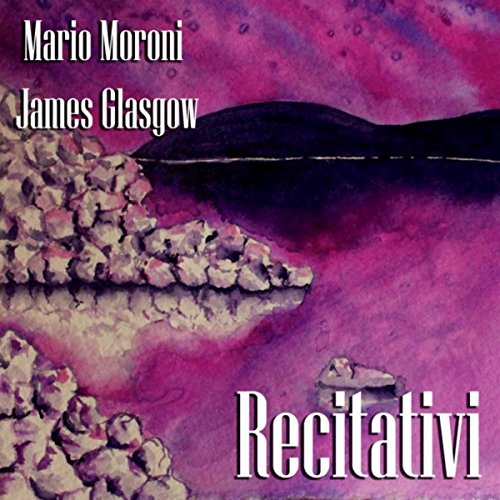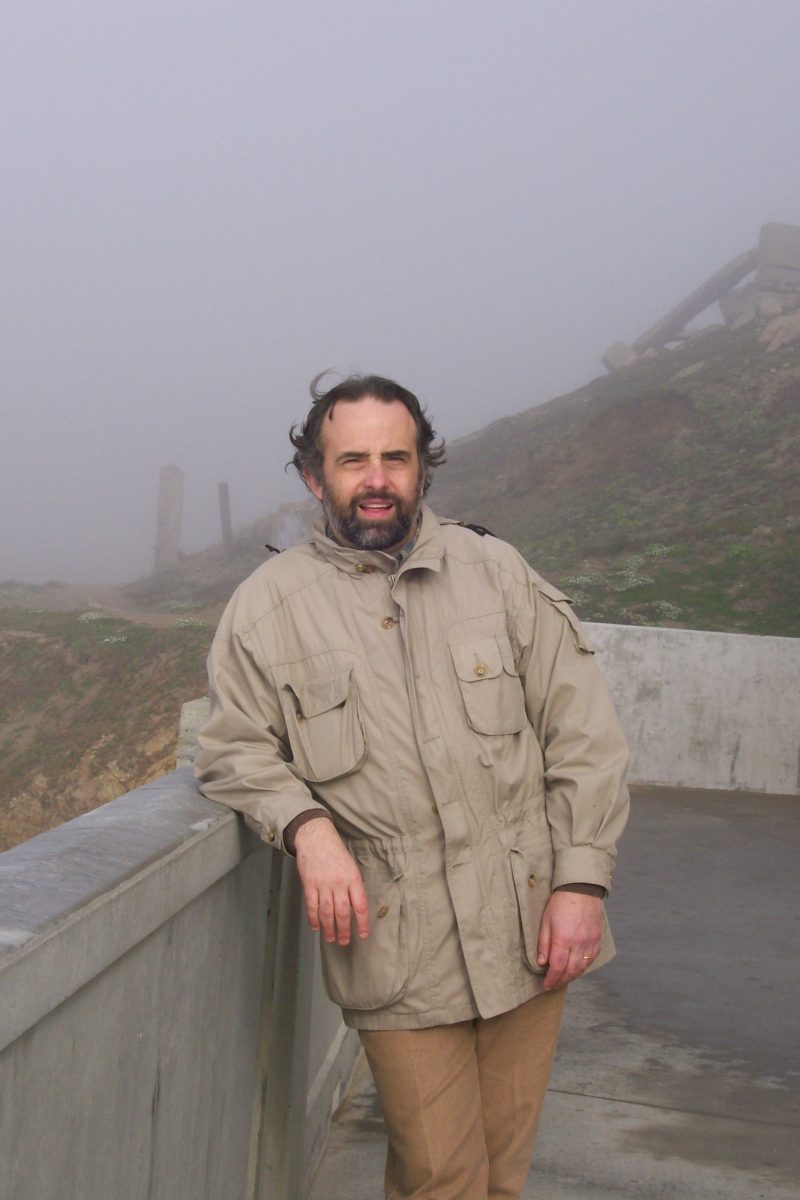
Recitare le ceneri
Ciò che rimane del giorno,
ciò che non si vede più
o che è stato mal visto, quel giorno
quando John Trevor era uscito in strada,
scese le scale:
“Cielo quasi blu
dalle mille forme scure”
aveva commentato,
sguardo oltre le nuvole
tanti passi come quei passi
ed ora camminava
già oltre tre isolati,
mentre Martin Jones, impiegato,
era uscito arrabbiato,
colto da collera strana
dopo che suo figlio, così,
al telefono, gli aveva detto:
“Me ne vado”, voce oltre le nuvole,
cielo dalle mille forme scure,
così aveva voltato l’angolo
e senza pensare aveva chiesto:
“Perché?” Come se non capisse
e di fronte alla metro
aveva visto Stephanie Lane,
madre di due, che correva
con lo sguardo oltre le nuvole,
con mille voci nella testa,
credeva che i suoi figli
non avessero fatto in tempo
a scuola e così voleva
telefonare, così, solo per sapere.
Intermezzo 1
Con lo sguardo oltre le nuvole,
con mille voci nella testa,
sopra le mille e mille luci
mille riflessi dai libri sacri,
da città deserte e mille,
mille villaggi, così, ora
riunite le greggi meccaniche, così,
proprio ora, riunite le greggi alate,
ora con questo sguardo sono io a parlare,
io molte volte io, a quale voce ho diritto
io, pastore tra mille e mille luci,
pastore e capitano di bordo,
io, pastore, seduto, ora, così, solo per un attimo
sull’aereo fantasma, così, oltre le nuvole
quale voce risiede e presiede, così
sorpassato il luogo della luna
occidente che insegue occidente
ormai liberate tutte le greggi, ormai.
Era la stessa mattina
in cui John Taylor era
passato per caso all’edicola e così,
solo per sapere,
aveva letto il giornale
e da una foto di prateria
era tornato alla casa
dell’infanzia, così, solo
per un momento, così,
come per guardare oltre
le nuvole, mille forme scure
e da lì era andato
verso il grattacielo,
dove intanto era già entrato
Paul Smith, pronto per lavorare
ma con la testa assente,
come in un sogno, così, uscito da casa
dopo aver ascoltato un messaggio
che diceva: “Non ci sei ora,
ma la tua voce non sarà assente per sempre”.
Intermezzo 2
Io, partito da villaggi del sale,
proprio così, sguardo oltre le nuvole,
dai porti smarriti di cui oggi si legge,
così, sui libri o sulle mappe,
io partito dai deserti quando
l’Asia era altra Asia,
quando le mattine non ancora
esplose nelle viscere
sotto i fuochi dei mortai, degli dèi,
così, proprio così, partire,
sguardo oltre le nuvole,
nell’avventura di una lingua soffusa,
mai del tutto scritta,
io, sempre io, molti io, sospeso nella sera
a pregare, a meditare, oggi in cabina
sull’aereo fantasma, a pilotare,
quali sogni di nascita, quali di morte?
Intermezzo 3
Io, ancora io, tutto il mio io
ora nella mappa elettronica
a cavallo di oceani, lasciati i deserti
e le carovane, così, danzanti
così, oltre le nuvole,
ora volo controluce, contro tutto
per contemplare, dove va il mio corso?
Con il vento che spira in coda,
che insegue le foglie, spazza via le memorie,
corso immortale, dove va, ora
così, oltre le nuvole.
Reciting the Ashes
What is left of the day
what can’t be seen any longer
or what was seen badly, that day
when John Trevor had gone out in the street,
down the stairs:
“Sky almost blue
with a thousand dark shapes”
he had commented,
his gaze beyond the clouds
many steps like those steps
and now he was walking,
having already gone three blocks,
while Martin Jones, employee,
had gone outside angry
caught in a strange rage
after his son, on the phone,
had said to him, just like that:
“I’m leaving,” his voice beyond the clouds,
sky with a thousand dark shapes,
so he had turned the corner
and without thinking had asked: ”Why?”
As if he didn’t get it,
and in front of the subway station
he had seen Stephanie Lane,
mother of two, who was running
with her gaze beyond the clouds,
with a thousand voices in her head,
thinking that her children
had not got to school on time
and so she wanted to phone,
just to make sure.
Intermezzo 1
With my gaze beyond the clouds,
a thousand voices in my head,
above the thousands and thousands of lights
a thousand reflections from the holy books,
from empty cities and a thousand,
a thousand villages, just like that, now,
reunited the mechanical flocks, like that,
right now, reunited the winged flocks,
now with this gaze I am the one speaking,
I, many times I, what voice do I have the right to,
I, shepherd amid thousands and thousands of lights,
I, shepherd and airline pilot,
I, shepherd, sitting, now, like that, just for a moment
on the phantom airplane, like that, beyond the clouds
what voice resides and presides, like that,
past the moon’s place
West chasing West
by now with the flocks all set free, now.
It was the same morning
when, just like that, John Taylor
had passed by the newsstand, by chance,
just to know, had read the paper,
and from the picture of a prairie
he had gone back to his childhood
home, just for a moment,
like that, like looking beyond
the clouds, a thousand dark shapes
and from there he had gone
toward the skyscraper,
where in the meantime
Paul Smith had already gone in,
ready to work, but absent-minded,
as in a dream, like that, having left home
after listening to a message
that said: “You are not there now,
but your voice will not always be missing.”
Intermezzo 2
I, who left the salt villages,
just like that, my gaze beyond the clouds,
from the lost ports that one still reads about,
like that, in books or on maps,
I who left the deserts when
Asia was a different Asia,
when the mornings were not yet
exploded in the bowels
under the fire of the mortars, of the gods,
like that, just like that, just leave,
my gaze beyond the clouds,
in the adventure of a suffused language,
never entirely written,
I, always me, many mes, suspended in the evening
praying, meditating, today in the cockpit
of the phantom airplane, piloting
which dreams of birth, which of death?
Intermezzo 3
I, still me, all of my me
now on the electronic map
riding over oceans left deserted
and caravans, like that, dancing
like that, beyond the clouds,
now I am flying backlit, against everything
so to contemplate, where is my course going?
with the wind at my tail,
chasing the leaves, sweeping the memories away,
immortal course, where it is going, now,
like that, beyond the clouds.
*NOTE TO THE POEM: “Reciting the Ashes” is part of a longer poetic evocation of the events of September 11, 2001. The poems do not represent the actual historical events, but are composed, rather, of a series of fragmentary references to the lives some of the victims, which I have gleaned from obituaries published in The New York Times. Thus the subjective poetic voice is reduced to a minimum, out of respect for the victims, a necessary act of humility meant to allow the tragedy to emerge from the objective biographical data. Interspersed in the poems there appear three distinct “intermezzi” which constitute an imaginary “terrorist” voice on board an aircraft. The intermezzi are willfully composed in a high or “aulic” poetic tone, and are based on Italian Romantic poet Giacomo Leopardi’s “Canto notturno di un pastore errante dell’Asia.”
The CD is available from Amazon: http://a.co/fYCVfSQ
About the poet:
 MARIO MORONI was born in Italy . He moved to the United States in 1989. He currently teaches Italian at Binghamton University. Mario Moroni has published eight volumes of poetry and one of poetic prose.In 2006 he released Reflections on Icaru’s Lands, a DVD of poetry, music, and images in collaboration with composerJon Hallstrom. He has also released the CD/DVD Reciting the Ashes, with piano music by composer David Gaita, in 2016, and the CD Recitativi, with music composed by James Glasgow, in 2017. Moroni ha performed his poems in various venues in the US, Europe, and Brazil.
MARIO MORONI was born in Italy . He moved to the United States in 1989. He currently teaches Italian at Binghamton University. Mario Moroni has published eight volumes of poetry and one of poetic prose.In 2006 he released Reflections on Icaru’s Lands, a DVD of poetry, music, and images in collaboration with composerJon Hallstrom. He has also released the CD/DVD Reciting the Ashes, with piano music by composer David Gaita, in 2016, and the CD Recitativi, with music composed by James Glasgow, in 2017. Moroni ha performed his poems in various venues in the US, Europe, and Brazil.
Recent Comments